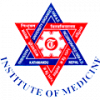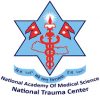Latest News
- Admission Open for 2024 Intake . NEET Qualified with 50 percentile are eligible for Direct Admission in Nepal . Booking started at all Private Medical Colleges of Nepal . Contact Soon for Best Package and Service . No Donation or Any Hidden Cost . Pay Directly to College .
- Admission Open for 2024 Intake . NEET Qualified with 50 percentile are eligible for Direct Admission in Nepal . Booking started at all Private Medical Colleges of Nepal . Contact Soon for Best Package and Service . No Donation or Any Hidden Cost . Pay Directly to College .
- Admission Open for 2024 Intake . NEET Qualified with 50 percentile are eligible for Direct Admission in Nepal . Booking started at all Private Medical Colleges of Nepal . Contact Soon for Best Package and Service . No Donation or Any Hidden Cost . Pay Directly to College .
- Admission Open for 2024 Intake . NEET Qualified with 50 percentile are eligible for Direct Admission in Nepal . Booking started at all Private Medical Colleges of Nepal . Contact Soon for Best Package and Service . No Donation or Any Hidden Cost . Pay Directly to College .
- Admission Open for 2024 Intake . NEET Qualified with 50 percentile are eligible for Direct Admission in Nepal . Booking started at all Private Medical Colleges of Nepal . Contact Soon for Best Package and Service . No Donation or Any Hidden Cost . Pay Directly to College .
- Admission Open for 2024 Intake . NEET Qualified with 50 percentile are eligible for Direct Admission in Nepal . Booking started at all Private Medical Colleges of Nepal . Contact Soon for Best Package and Service . No Donation or Any Hidden Cost . Pay Directly to College .










